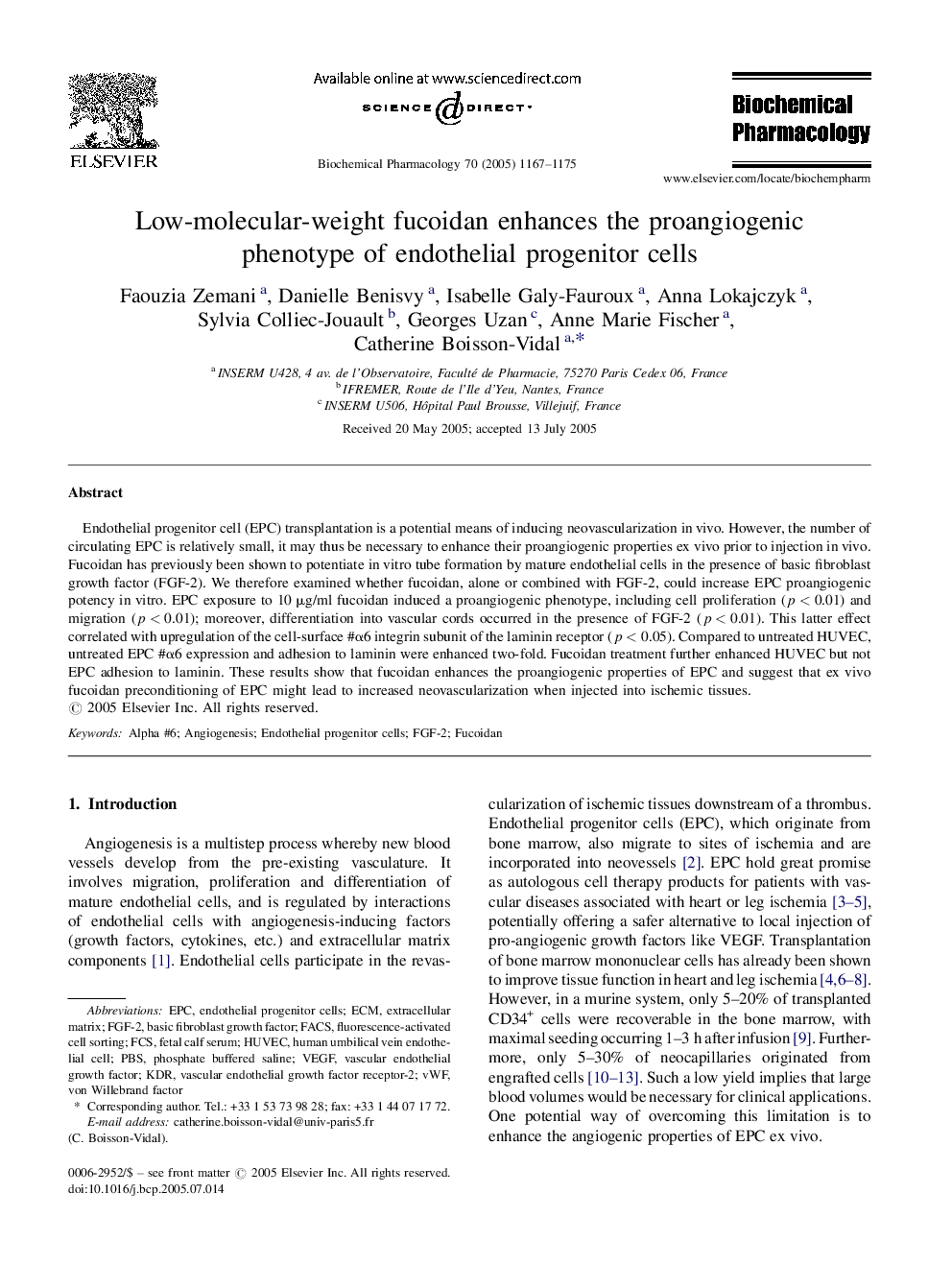| Article ID | Journal | Published Year | Pages | File Type |
|---|---|---|---|---|
| 9001770 | Biochemical Pharmacology | 2005 | 9 Pages |
Abstract
Endothelial progenitor cell (EPC) transplantation is a potential means of inducing neovascularization in vivo. However, the number of circulating EPC is relatively small, it may thus be necessary to enhance their proangiogenic properties ex vivo prior to injection in vivo. Fucoidan has previously been shown to potentiate in vitro tube formation by mature endothelial cells in the presence of basic fibroblast growth factor (FGF-2). We therefore examined whether fucoidan, alone or combined with FGF-2, could increase EPC proangiogenic potency in vitro. EPC exposure to 10 μg/ml fucoidan induced a proangiogenic phenotype, including cell proliferation (p < 0.01) and migration (p < 0.01); moreover, differentiation into vascular cords occurred in the presence of FGF-2 (p < 0.01). This latter effect correlated with upregulation of the cell-surface #α6 integrin subunit of the laminin receptor (p < 0.05). Compared to untreated HUVEC, untreated EPC #α6 expression and adhesion to laminin were enhanced two-fold. Fucoidan treatment further enhanced HUVEC but not EPC adhesion to laminin. These results show that fucoidan enhances the proangiogenic properties of EPC and suggest that ex vivo fucoidan preconditioning of EPC might lead to increased neovascularization when injected into ischemic tissues.
Keywords
KDRPBSFGF-2FACSFCSEPCHUVECECMvWFAngiogenesisfluorescence-activated cell sortingfetal calf serumHuman umbilical vein endothelial cellEndothelial progenitor cellsVon Willebrand factorVascular endothelial growth factorVascular Endothelial Growth Factor (VEGF)basic fibroblast growth factorPhosphate buffered salineFucoidanExtracellular matrixVascular endothelial growth factor receptor-2
Related Topics
Health Sciences
Pharmacology, Toxicology and Pharmaceutical Science
Pharmacology
Authors
Faouzia Zemani, Danielle Benisvy, Isabelle Galy-Fauroux, Anna Lokajczyk, Sylvia Colliec-Jouault, Georges Uzan, Anne Marie Fischer, Catherine Boisson-Vidal,
